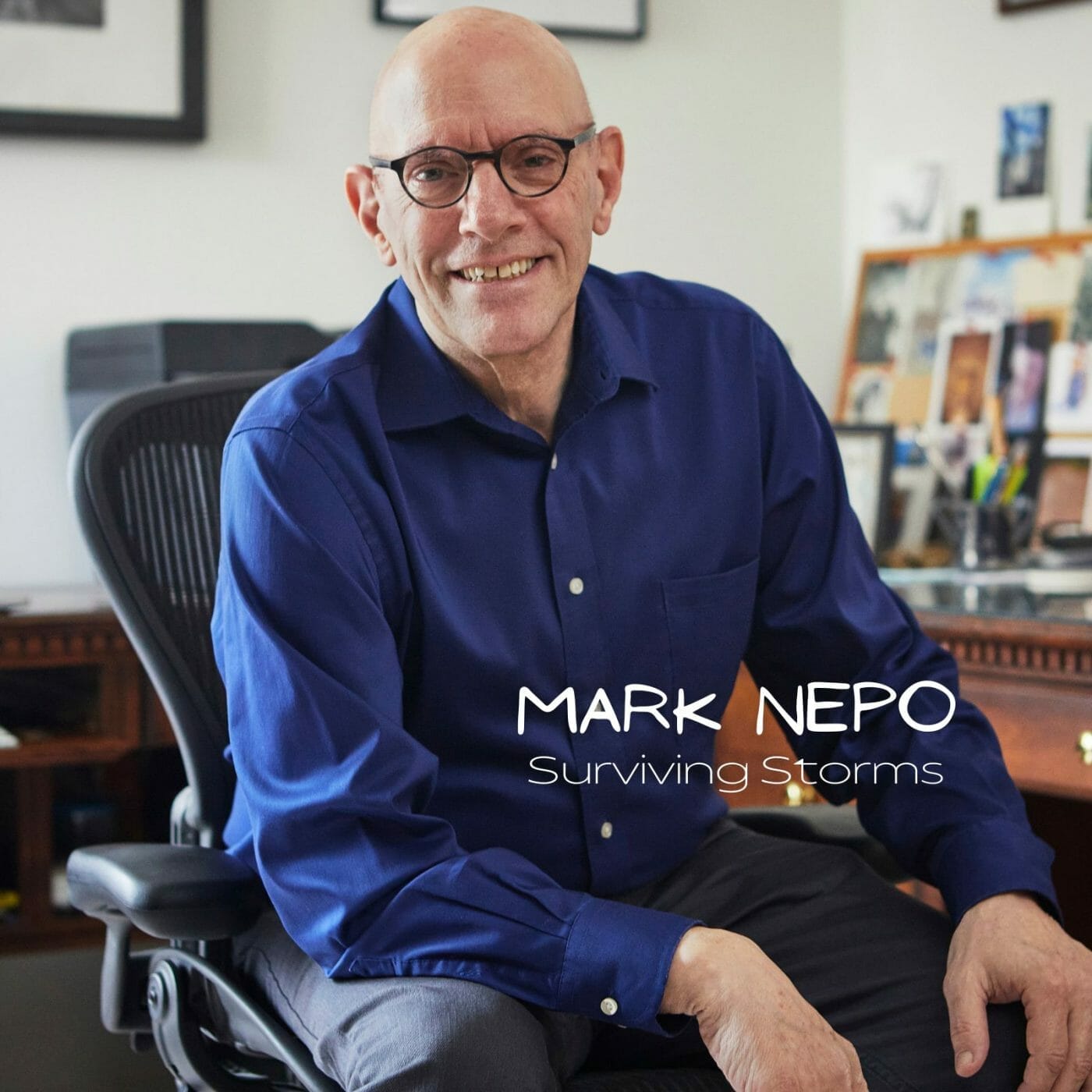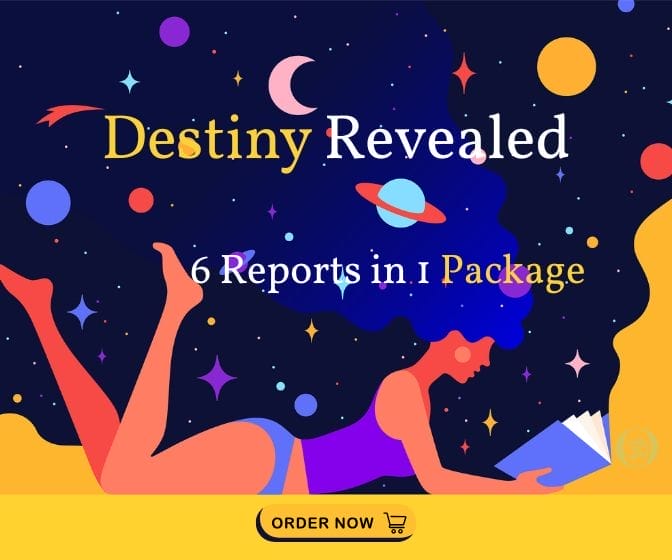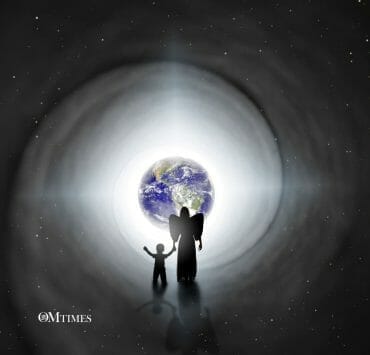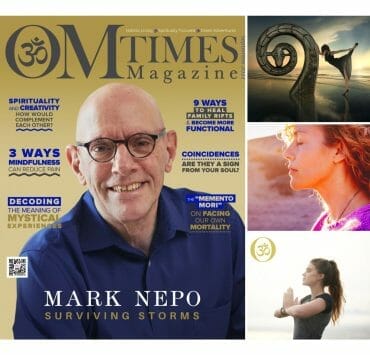Mark Nepo: Surviving Storms

Mark Nepo is a poet and philosopher who has taught poetry and spirituality for over 40 years. A New York Times bestselling author, his numerous award-winning books, including the ” Book of Awakening,” “More Together Than Alone,” and “Drinking From the River of Light,” have been translated into over 20 languages. He was several times a guest on Oprah Winfrey’s Super Soul Sunday program and the recipient of a lifetime achievement award from Age Nation. In addition, he was named one of 2016’s 100 most spiritually influential living people by Watkin’s mind, body spirit Magazine. He was also chosen as one of the Own networks, Super Soul 100, a group of inspired leaders using their gifts and voices to elevate humanity.
Mark Nepo: Surviving Storms
Interview by Sandie Sedgbeer
Mark Nepo spoke with Sandie Sedgbeer about his latest and undoubtedly most timely book “Surviving Storms, Finding the Strength to Meet Adversity,” in which he covers where we are, how we got here, and, more importantly, how we can meet these challenges by deepening our roots and solidifying our connection to all spirit and life.
To listen to the full interview of Mark Nepo with Sandie Sedgbeer on the OMTimes Radio and TV show What Is Going OM, click one of the players below.
Sandie Sedgbeer: Mark, in “Surviving Storms,” you state that every generation has faced times of turbulence and chaos, and all the traditions offer practices and resources to help us meet the challenges of our day. Still, the storms we face today and “the fault lines we endure as a society,” as you term it, are not the same as what previous generations have faced. Today we’ve got many more storms converging together at once.
Mark Nepo: Yes, we do. It’s a paradox because at once, what we’re facing is complex and unique, yet every generation has faced it. It’s our turn. Will we choose love over fear, or not? How will we show up? What will? Great love and suffering have always been great teachers, and they will reduce us to the core of sameness, the wonderful core in our hearts. But we do live in a particularly strange time. Recently, there was another mass shooting. When I look at this in the book, I make an effort to try to understand where we are today. There seems to be a convergence of many dissociating factors that have almost bred a generation that has lost its direct connection to life. And without that reverence, we don’t know what’s real and what’s not anymore.
One of the strangest things was the insurrection at the US capital. I remember seeing that live. It was horrifying because of how brutal people were to each other and this strange dissociation. They were taking pictures of themselves as if they were in a video game. I am trying to understand this epidemic of mass shootings, and what comes to me is the image of an aneurysm in the body. An aneurysm is a weak cell that, when the body is under pressure, explodes, and that usually leads to a stroke or something very significant in a physical body.
I think that, while every one of these individuals is responsible for their own actions, there are social aneurysms; there are weak cells in the social body and the responsibility we all bear. So the question is, how have we pressurized society to have such an epidemic of weak cells exploding? How can we depressurize society? How can we re-find our equilibrium and love each other forward?
Sandie Sedgbeer: Many are asking the same questions. In “Surviving Storms,” you lay out a really good explanation of how we got here, from the industrial revolution on. We all know that technology is creating so much division, separation, and isolation, and it’s also affecting our brains. It’s affecting our ability to sit and be with information; as soon as we’ve digested one piece, there’s another and another. You say there’s madness eating our society from the inside out. As we think of it, this confluence of progress is adding to that. So, tell us about what happens as society gets more complex.
Mark Nepo: There is this confluence, and we can go back to the industrial revolution. One of the great insights about modern progress comes from Karl Marx. We often, because of communism, tend to throw Marx out of the picture, but the fascinating thing is Marx didn’t create Marxism. He had some insights about how society works that are still very useful. And this was one of them. He saw, in 1844, as the industrial revolution began, the relationships that life was centered around. It was mostly farming, so people lived together, worked together, and the center of life was the farm and the fireplace in the center of the home. Then mechanized society started having people leave to work, and their work became a division of labor. And now people are only working on parts.
Marx foresaw that when people are divided from their true basic nature, if enough citizens become divided and separate, they will form an “Alien Nation.” He was the one who coined the term “alienation,” which is social loneliness or estrangement. In fact, he foresaw the first generation of therapists as alienists, as those who would restore people to their true whole basic nature. He didn’t say do away with progress. But, he said, let’s repair the cost of progress. I think that’s very relevant today.
So much of our struggle is because so many people have been separated from their direct connection in life and from life. So, there’s a loss of reverence for what life is. With media, we can cut and paste and record and playback, but every moment is unrepeatable.
I remember back in 2001, seeing the twin towers come down and how horrific that was. Then we saw that scene hundreds of times with 24-7 news. The value of technology today is that a hundred different people can see it once, not for you and me to see it a hundred times. So, one of the ways we have to stay current and connected to life is that when I feel the one time in my heart, I have to not look again. I have to not become hypnotized. Because I also think a modern struggle is that things, in nature and spiritually, are always coming together and falling apart. But when things come together, they’re very quiet, and when things fall apart, they naturally make a lot of noise. We in the modern age have become addicted to the noise of things falling apart. So, it’s not that we need a ‘good news station. We need a whole new station––so we can feel the balance of life, not turning from good to bad or bad to good, but seeing the totality of life. We talk rightfully in our age about ethnic diversity and racial diversity, and that’s built on spiritual diversity, which is what makes life so resilient. Such a resource is its diversity, which means letting all things in.
Sandie Sedgbeer: You say that today’s difficulties are part of a historical pattern. And if I may quote something you wrote, you said, “The long swells of history crest and crash century after century, the kindness and cruelty of an age expand and contracts, the openness and narrowness of how we learn either grows or collapses, depending on how each generation reacts to the storms they encounter, and create.” Well, everything has crashed in the world as we know it. And you say we can learn through this, but it’s cyclical. We’ve been here before in different ways. And we have never learned because we are here again!
crash century after century, the kindness and cruelty of an age expand and contracts, the openness and narrowness of how we learn either grows or collapses, depending on how each generation reacts to the storms they encounter, and create.” Well, everything has crashed in the world as we know it. And you say we can learn through this, but it’s cyclical. We’ve been here before in different ways. And we have never learned because we are here again!
Mark Nepo: Well, I would hold it a little differently. And that is because I believe I’ve come to think about incarnation and progress. So, what I mean by progress is that in our daily world, we can benefit and leave the world a little better for those who come after us. An example is an indigenous tribe––they migrate, move, and look for a place to set down roots and live. And they land on a plateau, and there’s an amazing epic reminiscent of eternity. So, they say this is where we want to live. And all the adults of that generation clear all the trees. So, when their children wake up, they just simply look out. So that’s progress. The children don’t have to clear the trees. The adults did the previous generation, but incarnation is no one can open your eyes and look for you. And if you don’t see, what’s the point of opening your eyes once you open your eyes? And if you don’t love, once you open your heart, what’s the point of loving? So, the incarnation is that every generation goes through these archetypal passages, no matter what technology we have or not, every generation from primitive times to today has the same spiritual journey of how to be a spirit in a body and time on earth together. So, wisdom is not a shortcut.; it’s a resource. And so, we haven’t learned, and it’s our turn to do it. And how will we do it in our turn?
I have come to believe more in incarnation than progress because I believe in the human heart and spirit, which is why Mother Theresa talked about courage and doing small things with love. It can be paralyzing to think about all of this on such a global level, even though we have to. Still, then it’s in the very gestures before us every day. How do we do this?
So, two things: there’s a chapter on the purpose of goodness. This came to me by looking at the work of Neil Degrassi Tyson, a wonderful contemporary physicist. He wrote a short book that is anything but a shortcut, called “Astrophysics for People in a Hurry” with a tongue-in-cheek title. It’s a very serious primer. In the beginning, he shares his feeling and his guess about how the universe began. And he talks about how, before everything was formed, basically, matter and anti-matter were vying for their place. What’s going to exist here? They were basically eating each other, and, he says at the moment, they were a billion and one photons of positive energy and just a billion hadrons of negative energy. Just one more, and boom, the universe came into being.
And he suggests that if the earth had settled in its orbit, a little closer to the sun, all the water would’ve evaporated, and there’d be no life. So, we wouldn’t be talking. Likewise, if it settled a little farther away, it would all freeze, and there’d be no life. So, I was struck that we’re here by such a small gesture. This isn’t a description of the moment of creation. This is a description of the ongoing creation of life. And every day, anonymously, life continues because there’s one more photon than hadron; there’s one more kindness than cruelty because there’s one more awareness than unconsciousness. And so, the purpose of goodness is, can we, through our incarnation, be the one gesture that keeps life going? Can we do that?
Continue to Page 2 of the Interview with Mark Nepo
OMTimes is the premier Spiritually Conscious Magazine. Follow Us On Facebook, Twitter, Instagram, Linkedin, Pinterest, and Youtube
A veteran broadcaster, author, and media consultant, Sandie Sedgbeer brings her incisive interviewing style to a brand new series of radio programs, What Is Going OM on OMTimes Radio, showcasing the world’s leading thinkers, scientists, authors, educators and parenting experts whose ideas are at the cutting edge. A professional journalist who cut her teeth in the ultra-competitive world of British newspapers and magazines, Sandie has interviewed a wide range of personalities from authors, scientists, celebrities, spiritual teachers, and politicians.







